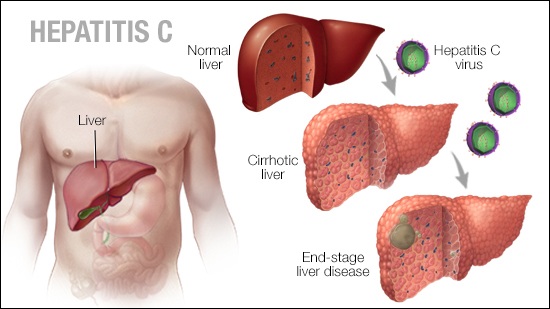Hepatitis C Awareness
Hepatitis C is an infection in the liver caused due to the virus Hepatitis C. It can lead to the inflammation of the liver. It can become problematic at a later time and lead to damage to the liver. The spread of the virus is routed via contaminated blood. One of the common treatments given to the patients was oral medicines and weekly injections. However, most of the individuals refrained from taking medications due to the fear of side effects or the presence of other health issues. Nowadays, the efficiency of the treatment is changing. The disease can be cured by oral medications taken for a period ranging from two to six months. However, these medications have to be taken every day to get the best results.
Appearance of symptoms
Most individuals are not aware if they are infected with the virus. The main reason behind this is the absence of symptoms which can take a much longer time to appear. It can appear in a short illness for some. However, it can become fatal for some. A chronic case of hepatitis C can lead to the development of serious health problems such as liver cancer or cirrhosis. The only way to prevent fatal casualties is to get the initial screening done even when the chances of getting infected by the virus or liver disease are few.
Common symptoms related to Hepatitis C
Chronic hepatitis C is a severe case of infection with the Hepatitis C virus. It remains a silent disease for a couple of years. The long time aids the virus to damage the liver, leading to the appearance of symptoms of the infection. Common signs include:
1) Bleeding
2) Bruising
3) Tiredness
4) Bad appetite
5) The skin and eyes can become yellow-colored
6) Change in the color of the urine
7) Irritation in the skin
8) Building up of fluid in the abdomen
9)Legs can get swelled
10) Loss in weight
11) Feeling of drowsiness
12) Slurring of speech
The diverse phases of Hepatitis C
The initial state of the infection is an acute phase. It is not possible to detect the virus at this stage due to the non-appearance of any symptoms. Mild symptoms are likely to appear for one to three months after virus exposure and can stay up to three months. However, acute hepatitis C infections do not always become chronic. The acute phase does not cause many symptoms. It can be treated effectively by antiviral therapy. Some people get their Hepatitis C Virus cleared from their bodies after the completion of the acute phase.
Causes of Hepatitis C infection
Hepatitis C Virus is responsible for the cause of the infection. The infection is likely to spread when the contaminated blood enters the bloodstream of the non-infected individual. The virus exists in many forms. Nearly sixty-seven subtypes of the virus have been identified. One of the most common genotypes of the virus is type 1. The treatment for the infection can vary based on the genotype of the virus.
Assessing the risk factors of the infection
The risk associated with the virus increases if
1) You are infected with HIV
2) Inhaled or injected illicit drugs
3) If your mother has been infected with Hepatitis C infection
4) Recipient of blood transfusion or organ transplant
Complications of the infection
1) Liver cancer
2) Failure in liver working
3) Liver cirrhosis
Treatment
Velakast (Sofosbuvir 400 mg and Velpatasvir 100 mg) is effective in treating long term Hepatitis C infection.








 +91-9811604444/ 9811604424/ 9999064250
+91-9811604444/ 9811604424/ 9999064250  8(800)100-47-90
8(800)100-47-90











